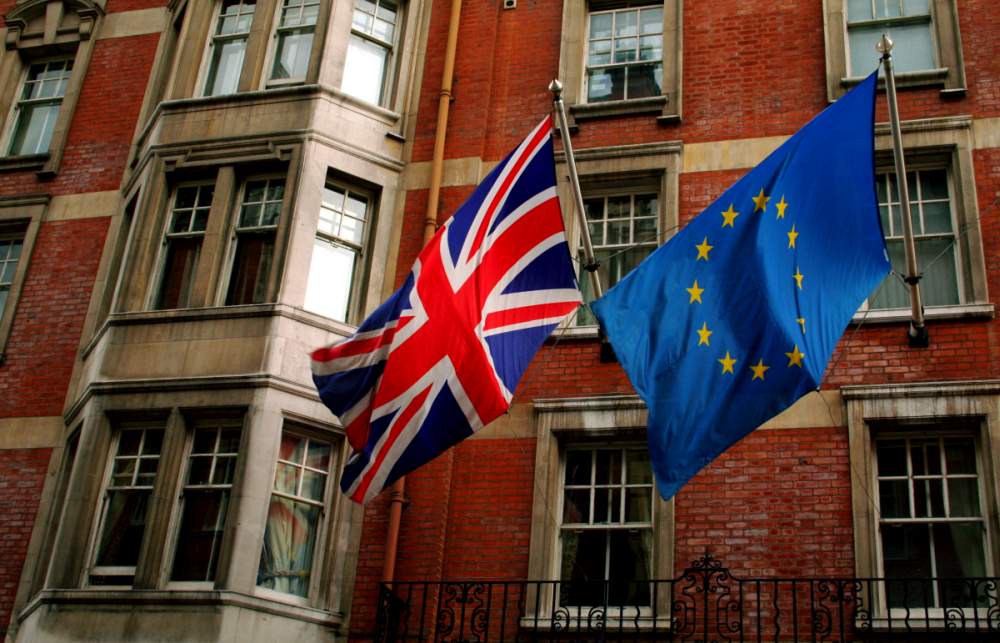
The chief executive of the Tenant Farmers' Association (TFA) has aired his fear that disagreements between Westminster and the devolved governments of the United Kingdom could impede a post-Brexit agreement for agriculture.
Agriculture is the responsibility of the devolved governments of the UK under the current devolution settlement, but leaders in both Scotland and Wales have accused the UK Government of attempting to take back powers to Westminster as the country withdraws from the European Union.
Welsh First Minister Carwyn Jones says the Welsh administration has been excluded from discussions about a new farming system across the UK following Brexit.
He says new Environment Secretary Michael Gove immediately cancelled meetings with ministers from the devolved governments on taking office.
Now, George Dunn, chief executive of the Tenant Farmers Association, says he is concerned about the effect of the disagreements on farming.
"The concern is that this is going to get in the way of sensible discussions if we can't sort the constitutional items quickly. Bear in mind Scotland thinks it is still going to be part of the European Union even after the rest of us leave. Northern Ireland hasn't got a government at the moment.
"Wales is really the only bit of the devolved architecture that's up to speed here. We share Carwyn Jones' concerns that the UK Government appears not to be understanding that there needs to be a collegiate approach to this new framework."
'Snaffle back powers'
The TFA chief executive spoke to FarmingUK following a meeting with Carwyn Jones.
He has also met with Michael Gove, pressing him to work together with the devolved governments on an agreed approach.
"The issue is that Welsh Government and others believe Westminster is trying to snaffle back some powers by putting itself in the position of the Council of Ministers when we leave the EU.
"My fear, therefore, is that rather than getting into sensible discussions about policy development, we spend the whole of the autumn and the winter talking about constitutional issues, which should have been resolved a long time ago, so we can get into the sensible discussion about what policy looks like.
"So we are not even able to get off first base because we haven't understood the constitutional architecture within which we will stand," he said.
'Negotiated UK framework'
George Dunn was accompanied by the chairman of TFA Cymru, Dennis Matheson, at the meeting with Carwyn Jones.

Following the meeting they issued a statement, which read: "All agreed on the need for a negotiated UK framework to be in place for agricultural policy, which is a devolved matter, to ensure the smooth operation of the UK market and the policy environment for farmers across the four parts of the United Kingdom.
"It is deeply concerning, with only a little over 20 months left before we formally leave the European Union, that so little progress has been made on this front.
"It had been hoped that greater clarity would have been evident following the publication of the Great Repeal Bill but this opportunity appears to have been missed by the UK Government.
"The Welsh Government is certainly well ahead in thinking through the implications of Brexit in comparison to the UK Government and TFA Cymru looks forward to further productive discussions with ministers and civil servants in Wales."
George Dunn told FarmingUK that he had met with Michael Gove twice since the high profile Brexit campaigner had taken up his post at Defra.
"We are talking to governments across the English-Welsh border. We have had a couple of sessions with Michael Gove already. We are certainly encouraging the UK Government to be more open handed in dealing with the devolved issues," he said.
However, he added: "We are getting no feedback from our friends in the Welsh Government that things are improving as yet."
'Substantial devolution'
The TFA chief executive said that the United Kingdom had undergone substantial devolution since the country initially joined the Common Market in 1973.
"The way in which the Great Repeal Bill - the withdrawal bill - has been written is effectively being seen by the devolved administration as a power grab back to Westminster for agriculture. When Gove came into the office of Secretary of State he cancelled two of the pre-existing joint ministerial meetings, which should have been looking at these points pretty avidly," he said.
"The other connected point is that, whilst there is a voice for Wales and supposedly for Northern Ireland and for Scotland, there isn't really a voice for England. There's a UK voice but there isn't an English voice necessarily.
"There is a concern about England maybe being behind the curve. There is a lot to think about and this is the basic stuff, not even the complicated stuff. That's why we are very concerned with only 20 months to go."
Asked what his priorities were for a post-Brexit deal for agriculture, he said, "We need to make sure we have a post-Brexit agreement which allows farmers to have the same access to funding as they have now."
He said: "We also want the ability for governments to think about proper structures for grant aiding farm resilience. So, looking at infrastructure, grants for flood and drought management, things that are going to make us more productive.
"We want new agri-environment schemes going forward and we want the ability for government to be more involved in promoting the production from Wales and from England as being of good quality, high standard of choice for consumers both here domestically and internationally. So we need government to be much more involved in the marketing of the stuff we do."
Lower standards
Given his emphasis on good quality and high standard food, FarmingUK asked him whether he had any concerns about potential free trade agreements with other countries operating to lower standards.
"If we have a free trade agreement with the United States of America and we are, as a result, forced to take chicken that's been dipped in chlorine, beef that has had growth promoting hormones used on it, pork that has had substances used to raise that, we will be undermining our standards here and if our standards mean anything we need to be finding ways of supporting those standards."
George Dunn said the TFA's solution would be to insist on minimum standards of quality at the point of sale rather than at the farm gate.
